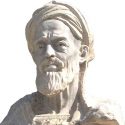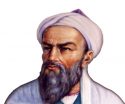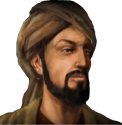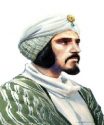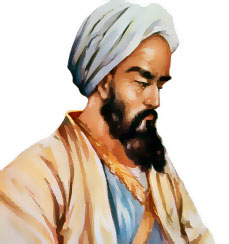 Al-Razi is best known for his role in medicine during the Golden Age of Islam. He worked mainly on diseases in children and elders, chemicals used in making medicine, and problems related to the eye. He also built a hospital in Rey, Tehran for curing patients of his native land. In short, he was a complete doctor. Al-Razi is also known as Rhazes in the Western world. He was given the title ‘father of pediatrics’.
Al-Razi is best known for his role in medicine during the Golden Age of Islam. He worked mainly on diseases in children and elders, chemicals used in making medicine, and problems related to the eye. He also built a hospital in Rey, Tehran for curing patients of his native land. In short, he was a complete doctor. Al-Razi is also known as Rhazes in the Western world. He was given the title ‘father of pediatrics’.
Biography – Life Span
Al-Razi was born in Rey, Tehran – the capital of Iran in 865 CE. He has quite a long name, ‘Abu Bakr Muhammad Ibn Zakarya Al-Razi’. He received his early education in Gundeshapur, an intellectual center of Education, which was located in Iran during the Sassanid Empire era. After completion of his essential education, al-razi moved to Baghdad to study medicine. He studied medicine at hospitals and translated the Greek books written on it. This enabled him to write books over two hundred. After practicing for a long time in Baghdad’s hospital, he returned to Rey – his native place. He was appointed as the chief physician and the head of Rey hospitals by the ruling caliph (king) Mansur ibn Ishaq.
Al-Razi taught medicine to students from different parts of the world. Therefore, he was called by them as ‘Shaikh’ – which means a noble person. He was very kind to his patients and treated them free of cost. Besides, he was also a good player of chess. Hence, he wrote a book on it and named it ‘A Delightful Book about Chess’. Moreover, Al-Razi has classified substances into vegetables, animals, and minerals. Apart from that, he also wrote a monograph on the diseases of children.
In metaphysics, the field of study of religion and material things, he believed that it stood on five rules God, soul, matter, time, and space. However, his religious views were rejected by al-Biruni, who was the Muslim philosopher of his time and wrote a book on his life. He also researched human eyes to find out internal workings and diseases.
Al-Razi suffered from blindness in the last years of his life. The blindness was caused by the damage in his optical nerve to the brain which sends signals from eye to brain. Al-Razi spent his last days in blindness and died in 925 CE in Rey, Iran.
Discoveries and Contributions
Al-Razi’s long services in medicine and optics led him to lay the groundwork for Muslim Scholars to expand these subjects. Avicenna (Ibn Sina) and Al-Biruni followed him and revised most of his works. Among many of his discoveries like chemical instruments to separate one chemical from others, creams for skin use, bottles, and flasks to use in laboratories.
Al-Razi’s sincere work was rewarded in the form of fame among Muslim and Western scholars alike. He is known for the following discoveries and contributions:
- Medical Treatise:
Al-Razi extensively documented his research work on medicine and wrote many treatises. One of the most important treatises is “Kitab al-Hawi” (The Comprehensive Book) which covers medicine, pharmacology, and healthcare procedures in detail. This treatise was considered an encyclopedia of medical discipline. - Recording Clinical Observations:
Al-Razi started the practice of recording patient’s medical history and clinical observations. This method improved the patient’s diagnosis and laid the foundation for evidence-based medicine. - Distillation Method:
The distillation method discovered by Jabir Ibn Hayyan was basic. Al-Razi refined and improved the distillation method in which many kinds of liquids could be distilled. - Invention of Anesthesia:
Al-Razi was the first to process the opium and give it as anesthesia to patients on which the surgery was performed. - Alchemy:
He wrote a book on alchemy, named ‘Al-Asrar (which means the Secret)’, which described the identification of chemicals obtained from minerals, animals, and plants for use in medical purposes. Also, he described various equipment used in chemistry and how to use them. - Viral Diseases:
He wrote books on viral diseases like smallpox – a disease that comes with fever and causes rashes on the face. The other disease is Measles – a disease in which eyes remain hot and spots appear on the body. - Human Eye:
He was also the first to know that the pupil is the part of an eye that first reacts to light.
Interesting Facts
- He was given the titles of the father of pediatrics, the doctor of doctors, and the founder of the study of eyes.
- The ruling caliph made him the chief physician and head of Rey hospitals.
- His book Al-Mansuri which was written on surgery became part of the curriculum of Western universities.
